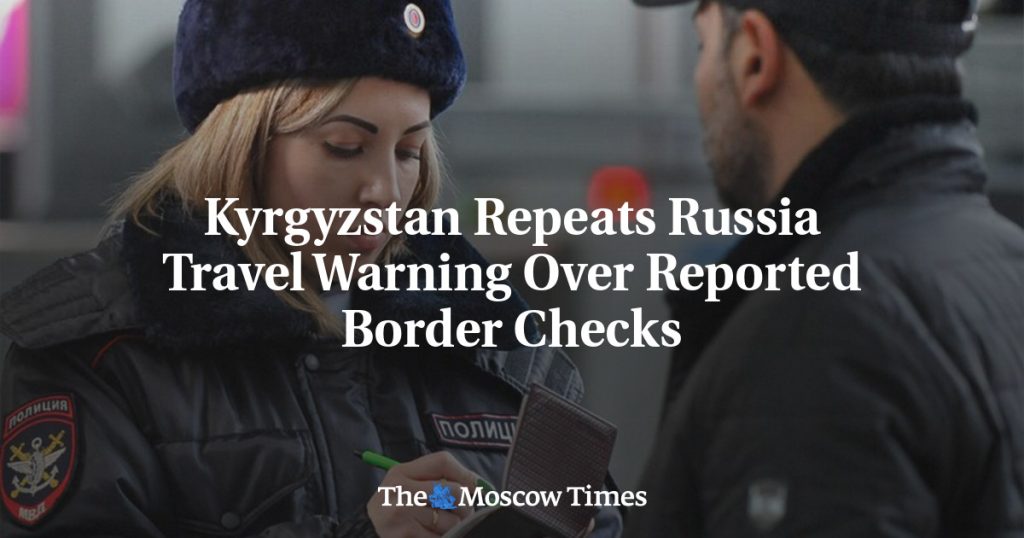Kyrgyzstan’s Foreign Ministry has once again advised its citizens to avoid unnecessary travel to Russia due to an increase in security checks at the border and denials of entry to Central Asians. They recommended that citizens without a compelling reason to travel to Russia should refrain from doing so until additional security measures and border control restrictions are lifted. The ministry also advised citizens to check in advance for any entry restrictions into Russia.
Migrant rights activists have reported instances of harassment, aggression, and unlawful detention of Central Asian nationals after the deadly attack on a concert hall outside Moscow on March 22. Tajikistan’s Foreign Ministry also expressed concerns about a rise in denials of entry to Russian citizens traveling to Russia, leading to an invitation of Russia’s ambassador to Dushanbe. They expressed dissatisfaction with the increased security checks at the border, causing inconvenience to their citizens.
Russia’s Foreign Ministry clarified that the heightened security checks at the border were temporary and not targeted at any specific nationality. While Kyrgyzstan’s Foreign Ministry stated that they had not received complaints of mass denials of entry, they encouraged citizens to reach out to the Kyrgyz Embassy in Moscow in case of unforeseen circumstances during travel to Russia. Despite the lack of specific complaints, the general advice is still being issued to avoid travel unless absolutely necessary.
The government’s warning to its citizens comes amid reports of increased security checks and entry denials at the Russian border, particularly for Central Asians. The March 22 attack on a concert hall outside Moscow has triggered a surge in security measures, leading to concerns about harassment and unjust detentions of Central Asian nationals. The recent incident prompted Tajikistan’s Foreign Ministry to raise concerns with Russia, underscoring the need for caution and preemptive measures before traveling to Russia.
The heightened security measures have caused inconvenience and distress for citizens traveling to Russia, prompting diplomatic exchanges between countries like Kyrgyzstan and Tajikistan with Russia. The issue of increased security checks and denials of entry is not limited to a specific nationality, according to Russia’s Foreign Ministry, and the measures are intended to be temporary. Despite this assurance, Kyrgyzstan’s Foreign Ministry continues to advise citizens to avoid unnecessary travel to Russia until the situation at the border improves and entry restrictions are lifted.
In cases of unforeseen circumstances or difficulties encountered by Kyrgyz citizens in Russia, the Foreign Ministry has urged them to seek assistance from the Kyrgyz Embassy in Moscow. The government’s proactive stance in informing and advising citizens reflects a commitment to protecting their interests and ensuring their safety during travel. Overall, the situation highlights the importance of staying informed, taking necessary precautions, and adhering to travel advisories and warnings when planning trips to countries with heightened security measures.















